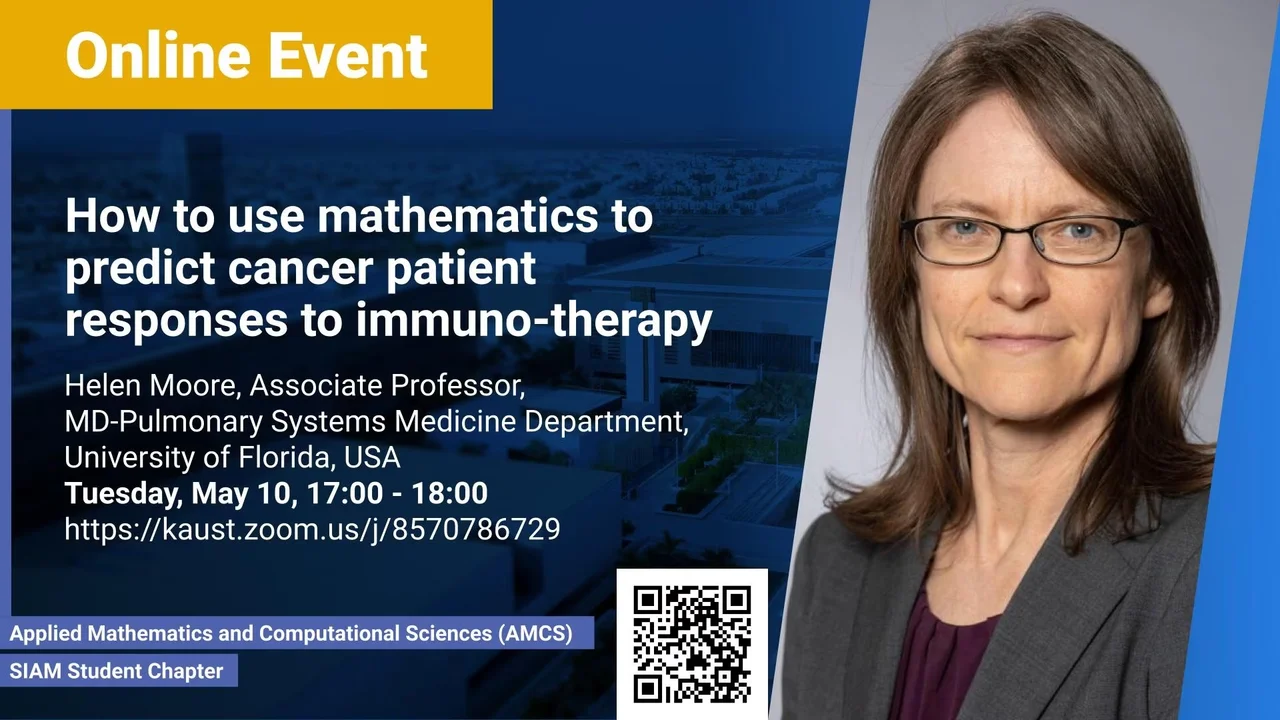
How to Use Mathematics to Predict Cancer Patient Responses to Immuno-therapy
How to Use Mathematics to Predict Cancer Patient Responses to Immuno-therapy.
Overview
Abstract
How to Use Mathematics to Predict Cancer Patient Responses to Immuno-therapy.
Brief Biography
Dr. Helen Moore graduated from the North Carolina School of Science and Mathematics and the University of North Carolina at Chapel Hill. She received her PhD in mathematics in 1995 from Stony Brook University. Her original work in differential geometry focused on shapes that minimize volume under constraints. While in academia, she won two teaching awards and received a National Science Foundation grant for her research. She was on the faculty at Bowdoin College and Stanford University, and also worked at a research mathematics institute. At Stanford, Dr. Moore collaborated with medical school faculty, shifting her use of optimization techniques to apply them to therapies for cancer, HIV, and hepatitis C.
From 2006-2021, Dr. Moore worked in the biopharma industry, including Genentech, Certara, Bristol-Myers Squibb, AstraZeneca, and Applied BioMath. Her focus areas include oncology, immunotherapy, optimizing combination drug regimens, and predicting cancer patient response to immunotherapy. Dr. Moore was selected as a Fellow of the Society for Industrial and Applied Mathematics in 2018, with the following citation: “For impactful industrial application of mathematical modeling in oncology, immunology, and virology. For mentoring, teaching, and leadership.”
Dr. Moore currently has three main areas of research: predicting patient response to immunotherapy, assessing systems model predictions, and optimizing combination drug regimens.